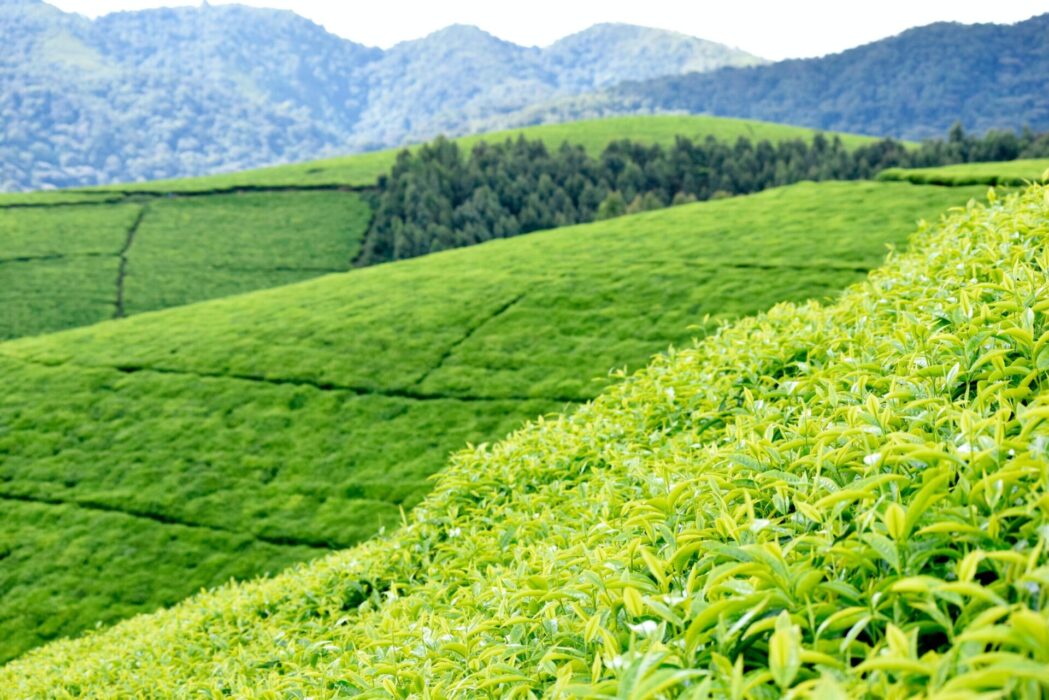Burundi, a small East African country, is renowned for its quality tea production. Introduced in the 1930s, tea growing has developed over the decades to become a major source of income for the country. However, the industry faces a number of challenges that could jeopardize its future.
History and expansion of tea growing in Burundi
The first tea plants were introduced to Burundi in 1931, at the Gisozi agricultural research station. However, it wasn't until 1963 that tea cultivation spread beyond the research centers. The climatic conditions and acidic soils of the Mugamba and Mumirwa regions, in the east and west of the country, proved particularly suitable for tea production.
Burundi Tea Board (OTB) was created to oversee and develop this sector. Thanks to substantial investment, the tea industry has grown significantly. Today, Burundi has several tea-processing factories spread across the country's production zones.
Production and marketing processes
Tea production in Burundi involves growing the tea bushes, plucking the green leaves, processing and marketing. Over 40,000 Burundian tea growers deliver their harvests to OTB factories. Sales are made twice a month, but payments are only made six times a year. This organization aims to ensure a regular income for producers.
Black tea is Burundi's main product. However, diversification efforts are underway to include green and specialty teas. Most of Burundi's tea is exported, with international sales via the Mombasa hub in Kenya.
Benefits of the tea sector for Burundi
- Export revenues : Tea is Burundi's second most important export crop after coffee. The foreign currency generated by its sales contributes to the country's balance of trade.
- Employment and the fight against poverty: The tea sector provides direct and indirect employment for thousands of Burundians, contributing to the livelihood of many families in rural areas.
- Infrastructure development : The development of tea-growing has led to improvements in roads, water and electricity supplies in the areas concerned.
Challenges facing the Burundian tea industry
- Price fluctuations : The price of tea on the international market is subject to major fluctuations, which affects the stability of producers' incomes.
- Climate change : Climatic variations impact yields and production quality. Drought and irregular rainfall weaken plantations.
- Outdated equipment and plants : The lack of investment in modernizing production tools limits Burundi's ability to compete and diversify its production.
- International competition : Burundi faces increasing competition from major tea producers such as Kenya, India and Sri Lanka.
Future prospects and potential solutions
Despite these challenges, it is possible for Burundi to maintain and even increase its tea production while improving its quality. Here are a few possible solutions:
- Investment in modernization : Rehabilitating factories, acquiring state-of-the-art equipment and training staff would boost productivity and guarantee better tea quality.
- Diversification and added value : Encouraging the production of green teas, organic teas and specialty teas could help Burundi stand out from the crowd and open up new markets.
- Local market development : Promoting tea consumption at national level would reduce dependence on exports.
- Sustainable farming practices : The adoption of agroecological techniques would preserve the soil, protect the environment and promote Burundian tea to ethically-minded consumers.
Conclusion
Burundian tea, renowned for its exceptional quality, is an important part of the country's economy and culture. However, the tea industry faces major challenges that threaten its sustainability. To ensure a sustainable future for this production, concerted efforts are needed to modernize infrastructure, diversify production, develop the local market and adopt sustainable cultivation practices.


No Title
Hi aim interesting Burundi coffee and tea export can you send me your price list